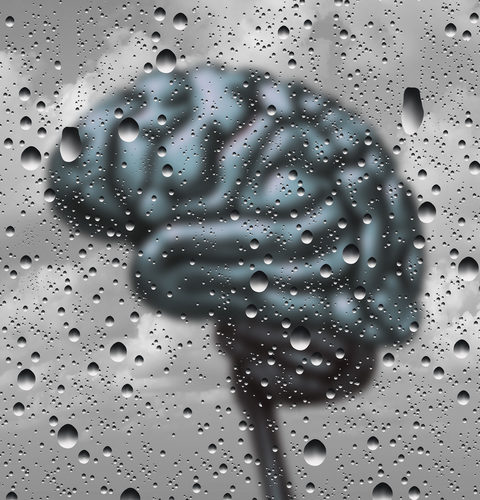You have likely seen the warning labels on household items like spray paint, cleaning fluids and permanent markers, advising caution around toxic fumes and strongly suggesting the use of these products in well-ventilated areas. If you have ever briefly or accidentally ignored this suggestion, you may have experienced some lightheadedness or nausea as the chemicals these substances contain worked their way into your body. These relatively mild effects are the very beginning of a high that can be reached by purposefully overexposing yourself to these fumes. Deliberately using these chemicals to achieve a high is usually known as sniffing or huffing — this misuse of household substances creates the classification of illicit drugs known as inhalants.
An estimated 527,000 Americans over the age of 12 were active inhalant users as of 2015. These drugs are concerning because they are so easy to access — there are few restrictions on purchasing inhalable substances, which include glue, aerosol deodorants, hair spray and even whipped cream. As a result, young people are often the most active users of these drugs. The danger is compounded because of the toxicity of the ingredients, and because the effects of these poisons become especially harmful the longer these habits are in place.
EFFECTS OF INHALANT ADDICTION ON THE BRAIN AND BODY
Your lungs are full of delicate blood vessels that absorb the oxygen in the air you breathe. This oxygen is carried to your muscles, organs and brain, where it plays a vital role in nearly every task in your body. When you inhale other gases or vapors, the blood vessels in your lungs absorb harmful ingredients like ethanols or nitrites. These ingredients typically have one of two possible effects. First and most commonly, they can act as an asphyxiant, interrupting your body’s oxygen supply and causing a decrease in mental activity since your brain needs oxygen to function. In other cases, the inhaled substance can be a nervous system depressant, which means that it sends chemical signals to slow down brain activity similarly to alcohol or benzodiazepines. Both asphyxiants and depressants result in a high that dampens the senses, dulls the mind and numbs the body.
When it comes to long-term abuse of inhalants, the plain truth is that the inhaled chemicals are considered poisonous. Even without overdosing, these drugs can result in permanent brain and nerve damage and can be deadly without warning. Cutting off the oxygen supply to your brain kills irreplaceable brain cells, and can cause seizures or comas. When you use inhalants, you are exposing your body to extremely harmful chemicals that damage your whole body and not just your brain.


TREATING INHALANT ADDICTION
Though statistics show inhalants themselves have a low rate of addiction, it is still very possible to become addicted to inhalants. It is also common to be addicted to a different substance while simultaneously abusing inhalants. Since the physical effects of inhalant abuse are so dangerous, it is best to seek treatment at a facility that can monitor your health with medical detox and withdrawal management programs. The staff at The Springboard Center in Midland, TX includes licensed medical professionals who are qualified to provide necessary treatments for clients with a high risk of health complications. We are also equipped to tailor our programs to the needs of clients who struggle with multiple addictions.
Our goal is to help you achieve recovery without relapse. We focus on providing customizable care because we know that every person’s experience with addiction is different, and we want you to find a treatment program that works for you during your time with Springboard and beyond. Our options include:
- Residential treatment
- Intensive outpatient treatment
- Group and individual therapy
- Family counseling
We provide mental health counseling alongside medically-assisted treatments because strengthening your mind is just as important as strengthening your body. Addiction is a mental health disorder that requires management and willpower, which counseling sessions and support groups can provide. At Springboard, we aim to give you all the tools you need to live the rest of your life substance-free.
CONTACT THE SPRINGBOARD CENTER
Springboard is proud to be the premier addiction treatment center for the Permian Basin region of Texas, New Mexico and Oklahoma. We treat men and women over the age of 18 for addiction to drugs and alcohol, and we can offer medically-assisted detox at our facility and in partnership with local healthcare centers. If you or your loved one is struggling with addiction, contact us to find out if our programs are right for you. Call us today at our office in Midland, TX 432-620-0255 to learn more about the resources available to you during your recovery.

